Furthering the Brain Health Agenda in Spain
Behavioral neurologist and Global Atlantic Fellow Carmen Lage reflects on a recent gathering of Spanish fellows during Walking the Talk for Dementia and how brain health is like a pilgrim’s backpack.
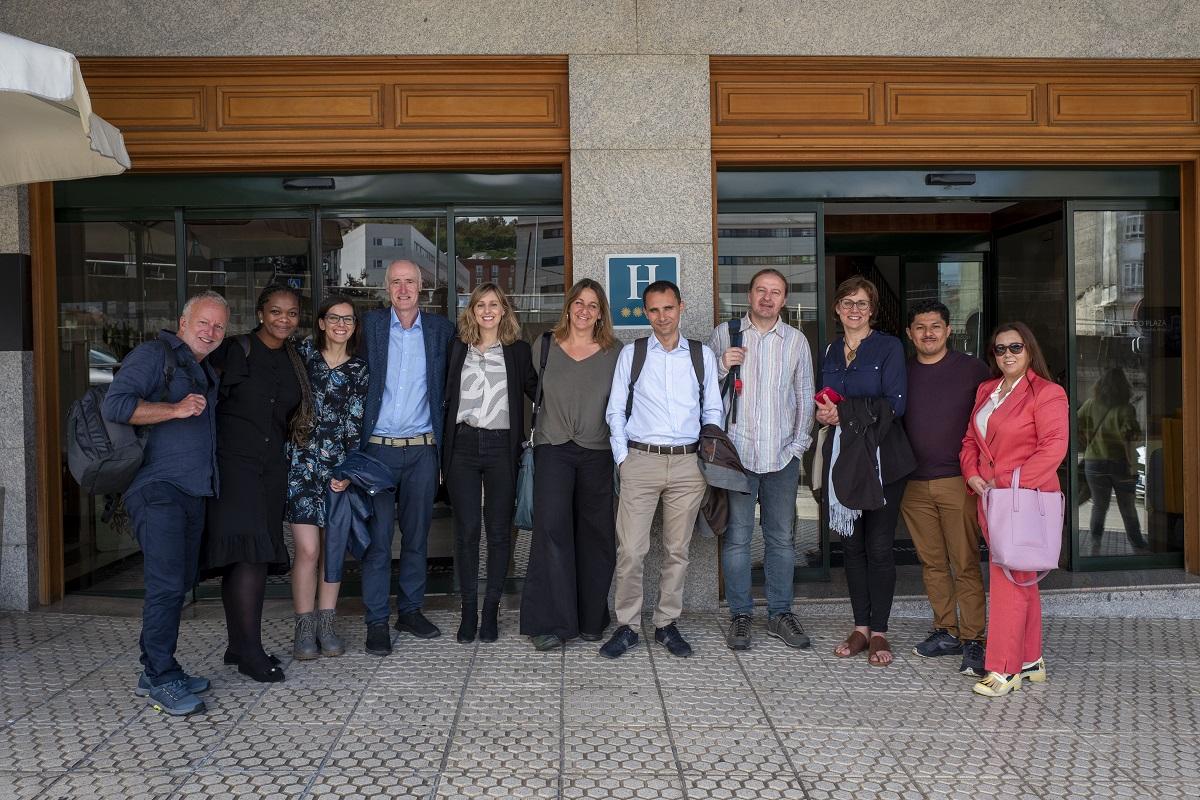
Above: GBHI Community Members gather in Santiago de Compostela, Spain. Photo by Alex Kornhuber, Atlantic Fellow
“Buah chaval. Qué bien se anda sin mochila.”
“Ya te digo.”
These two older adults were talking as if they were teenagers, so I couldn’t help but smile. I just overheard their conversation, walking along the streets of Santiago towards the city center. It was a sunny morning after several days of rain. Walking the Talk for Dementia, which was organized by Global Atlantic Fellows Fernando Aguzzoli-Peres and Clara Dominguez with support from GBHI, had been a tremendous success: an event that got people together from completely different parts of the world and different backgrounds, walking the same path, sharing experiences and perspectives on dementia, enriching one another. The city of Santiago, in the western part of Spain, was the end of the Way, the same destination as for many pilgrims from all over the world on the Camino de Santiago. As for these two older adults. By their accent, they were probably from the south of the country. I observed their legs, strong and tanned, that had walked so many miles. They were chatting about the relief of walking without the backpack they had been carrying for so long. As a former pilgrim, I knew that feeling too well—a feeling like flying.
Walking the Talk for Dementia was also the perfect opportunity for us—the Spanish Atlantic Fellows for Equity in Brain Health—to finally meet in person. The fellows gathering, which was organized by GBHI at Trinity College, enabled us to get to know each other, to share ideas and to develop our network, with Brian Lawlor and Iracema Leroi being kind enough to guide the meeting. Agustín Ibáñez also shared his experience in research collaboration, and we learned about the growth of ReDLat, a Latin American research initiative, and useful strategies for networking: to select the best ideas; to keep focused; to select projects that can be scalable to multi-centric projects; to pursue funding that ensures long-term sustainability. And a key lesson: "Success is the result of many failures."
The fellows shared several interests and ideas for potential projects, and we were asked about the situation in relation to brain health in Spain. I have to admit that, after spending one whole year during my residential fellowship in UCSF talking about brain health every day, this was the first time that I really became aware that, in Spain, with very few exceptions, we don’t talk about brain health at all. It’s not that there is no agenda about brain health; it’s that we are not even familiar with the concept. "A Brain Health Plan is not a Dementia Plan." Of course, it isn’t. Ultimately, we agreed to focus on a specific aim: to write a position paper about a Roadmap for Brain Health in Spain.
This is the magic of the Atlantic Fellows programs. I remembered a talk from Chris Oechsli, former President and CEO of The Atlantic Philanthropies, who told us that this kind of meeting was a frequent strategy: "When you put people with shared values together in the same room, opportunity comes." I entered that fellows gathering in Santiago without any idea of what we were going to talk about and left with a clear plan to try to advance brain health in Spain.
And the next morning, when I was observing those older adults, at least in their seventies, but agile and energetic as two mice, I thought that maybe brain health is like a pilgrim’s backpack. What you carry when you are old is what you have been putting in it during all your life. And any pilgrim knows that, if you want to walk far, you need to keep your backpack light. We spend a lot of time talking about leg pain and how to alleviate it. But the smart thing is to avoid putting too much stuff in your backpack. It’s what helps you enjoy the way.
Authors
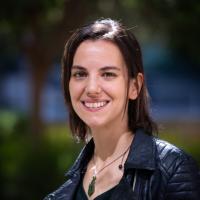
Carmen Lage, MD, PhD
Behavioral Neurologist
GBHI Members Mentioned
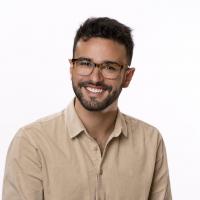
Fernando Aguzzoli Peres
Journalist & Writer
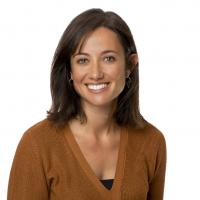
Clara Domínguez Vivero, MD
Neurologist
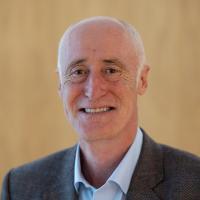
Brian Lawlor, MD, FRCPI, FRCPsych, MRIA
Founding Director, Trinity College Dublin

Iracema Leroi, MD, FRCPC, MRCPsych
Site Director, Trinity College Dublin

